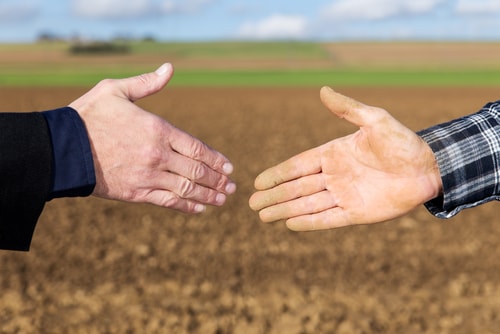What’s its value? What should farmers know beforehand?
By Diego Flammini, Farms.com
Location, location, location.
It’s one of the simplest sayings and also one of the most truthful.
When buying a house, it’s all about the location of the property and also the location of the amenities around it. How far is the school, the grocery store or the bank?
When looking to purchase farmland, the same adage applies. But the location parameters may be different. Where is the nearest water source? Where is the nearest farm equipment supplier? What is the distance to get your farm product to market?
Obviously, the most important factor about farmland is the price.
The USDA’s National Agricultural Statistics Service reports since 2005, farmland has increased from about $1,500/acre in 2005 to around $3,000/acre in 2014.
Using Iowa as an example, the price per acre averaged about $7700 in 2013. In 2014, prices jumped more than 10% to $8,500 per acre.
The American Bankers Association released a list of some things to consider when deciding to acquire farmland which includes:
Buying vs renting
Rental prices can be high ,but renting can also free up some cash for other things. Consider your total land payment per tillable acre owned and how it compares to rentals in the area.
Soil condition
What is the current condition of the soil and how is it going to impact your input costs? Do you have to spend more money bringing the soil up to the level you need it to be at?
Water sources
Is the property equipped with irrigation? Adequate water can be an important factor when establishing farmland value.
Join the conversation and tell us if you’re currently looking to buy farmland. Where are you looking to buy? What are some hurdles you might have to overcome to get the land you want? Do you think there is a farmland pricing bubble – and if so, when do you think it will burst?

A farmer and businessman shake hands
Miriam Doerr
Shutterstock.com